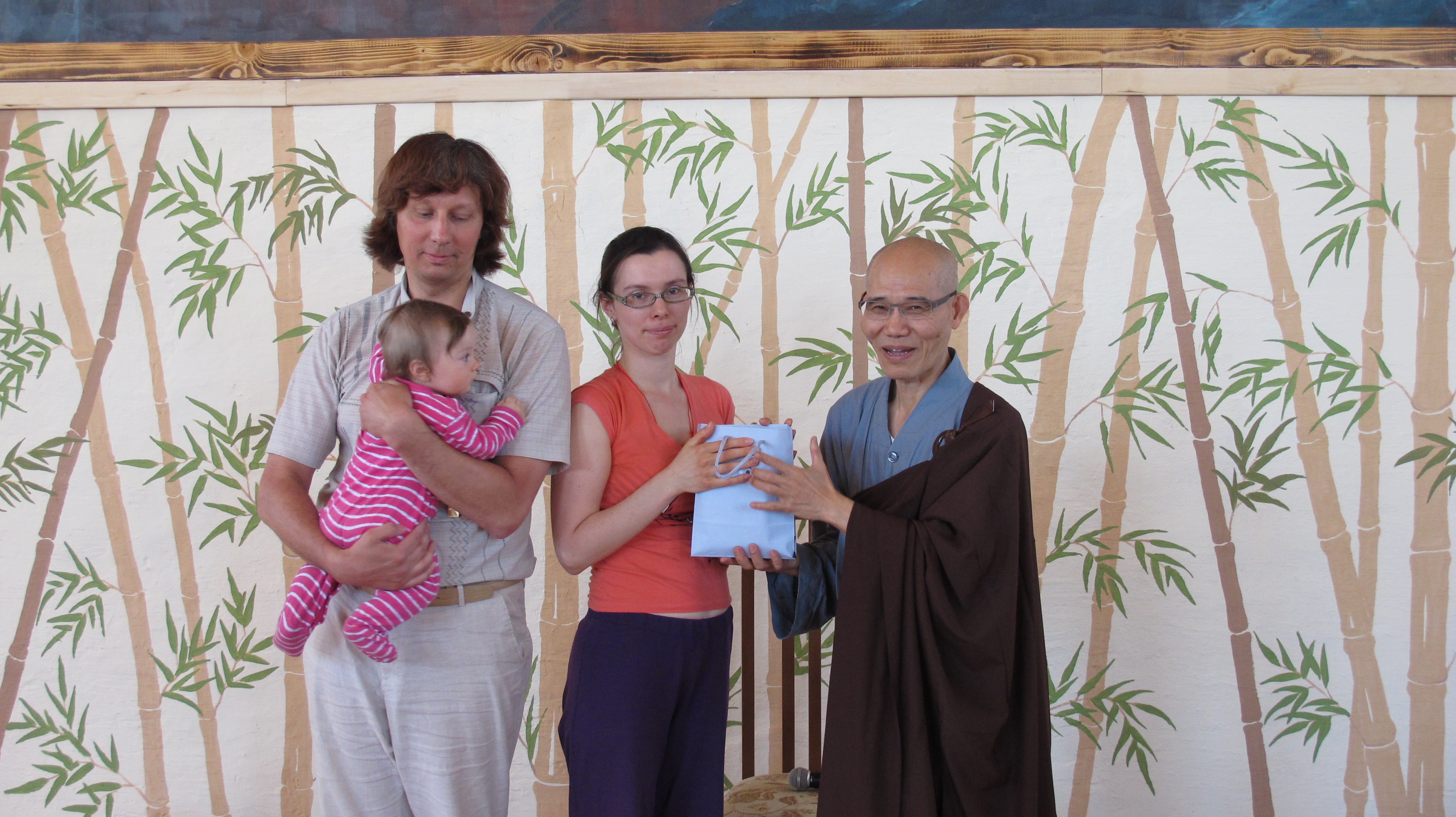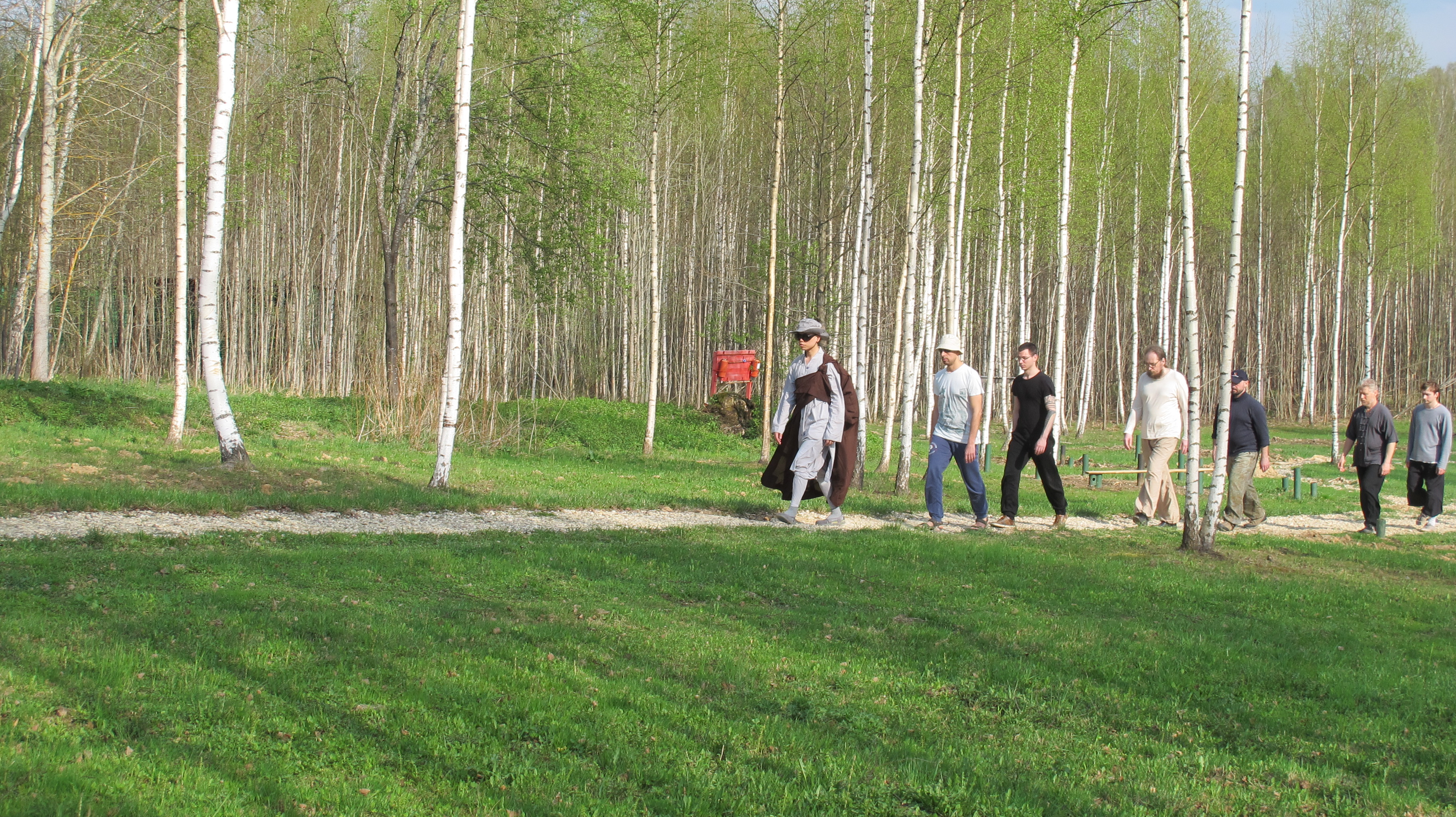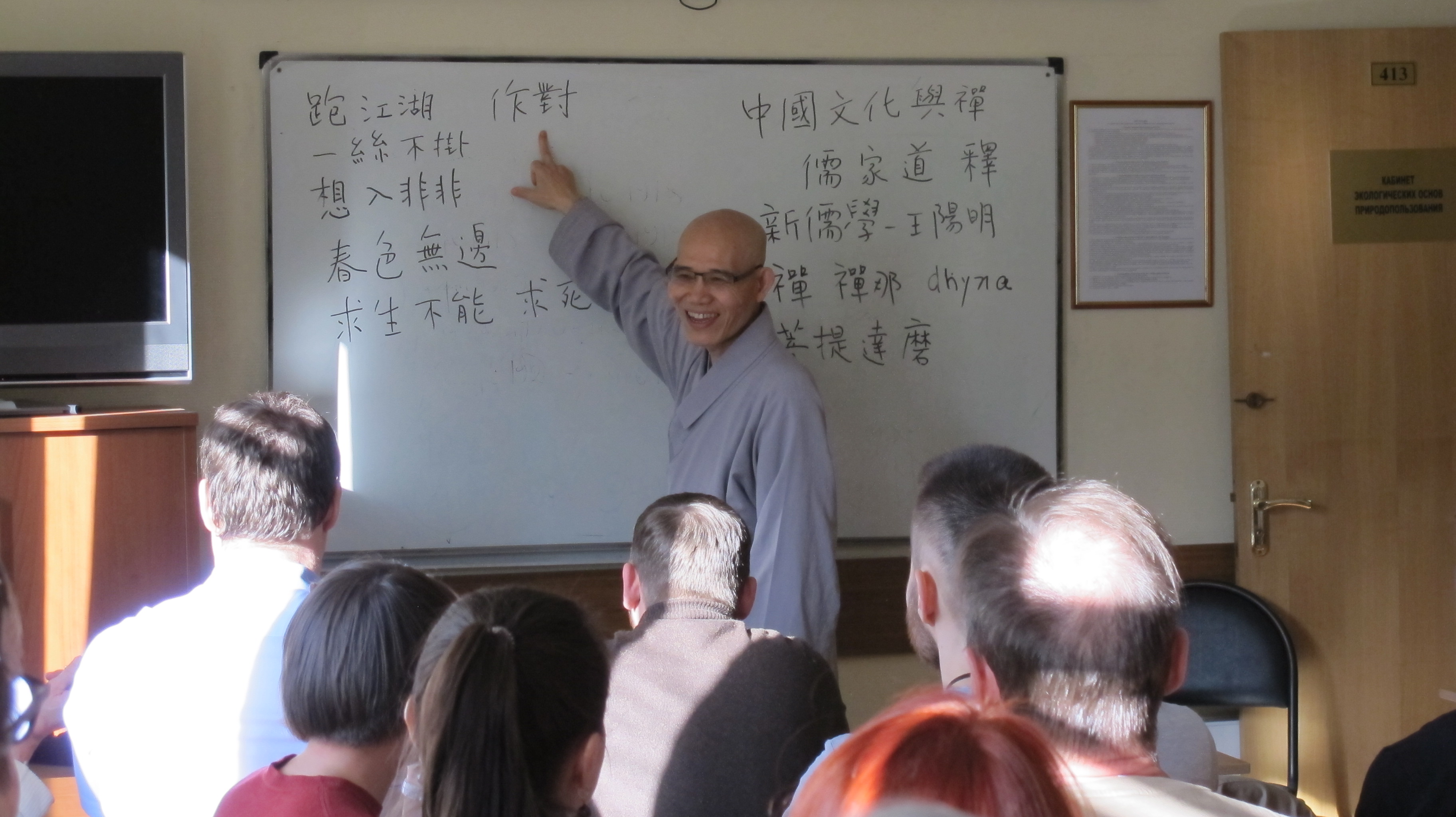My experience of Silent illumination Retreat in Russia
Exactly 15 years ago I met Master Sheng Yen, and started to practice the method of silent illumination (mozhao chan). For several reasons, Ven. Master Sheng Yen remained my favorite and closest teacher.

First, our approach to learning the Dharma was the same: practical, yet striving to understand its mechanisms and how it worked. Secondly, Master Sheng Yen taught the Dharma in clear and simple words, but at the same time deeply pointing at the very matter. Thirdly, he enabled me to get rid of the delusions I had for nine years until I met him. Having read various books, I believed that the great turnover I experienced in 1994 was the attainment of enlightenment. In fact, however, Master Sheng Yen explained that I had achieved a unified mind, and how it differed from enlightenment. This piece of knowledge is very rare and uncommon. For the majority of Zen teachers mistook “attaining a unified mind” for enlightenment. There were plenty of wrong descriptions in books, talks, articles, and, as a result, my practice was guided incorrectly for nine years.

Master Sheng Yen said it's necessary to drop everything – self, mind, universe, all ideas –only then would one be open to Chan and see reality beyond construct. If we ignore this, then there is a great risk to be stuck on the level of unified mind. As Master Sheng Yen said, without correct instruction, there is very little chance to attain real enlightenment.
I realized that I want to develop this new, deep state of mind in my everyday life. I’ve practiced mozhao chan for fifteen years, but now I grasped it tighter.
Generally, it seems to me that the method of mozhao chan is beyond my grasp. If you try to hold onto something in your practice, then you would stumble on it, and fail the practice of mozhao chan. But if you don't hold onto something, then it's easy to fall back into old habits, and fail in the practice. So I thought at times that the mozhao method is too simple, and it is too hard to grasp.

On this retreat, we started with focusing on the Four Foundations of Mindfulness, especially mindfulness of body - breathing in particular. In the past decade I didn't meditate much on the mindfulness of breathing; it seemed to be something simple and not very interesting. Yet, since it was the theme of the retreat, I tried to observe the breath during the first three days, and I understood that it helps to change our habitual reactions. When I disagreed with something and got ready to argue, I experienced over-breathing; when I saw something beautiful, I held my breath and watched. Thus, I discovered that the “simplest” mindfulness of breathing revealed that I was used to either clinging to things or rejecting them.
Therefore the “practice for the beginners” helped me, after dozens of years studying Buddhism, to keep track of and to stop my self-centered mental habits. Also, I understood that by practicing sensitivity of breathing, we could develop a greater capacity for subtle awareness, not only of our own state, but of others’ as well. And that, in turn, expands our ability to help others.
Master Sheng Yen once said, “the practice of mozhao chan doesn't necessarily require Samadhi; rather, we keep being aware, and thus remain here-and-now, not entering samadhi.” The point is to let go of stereotypes and attachments. And I thought, from the perception that is free from the illusory self, phenomena did not disappear; yet a distinct sense of a separate “self” disappears. Likewise, phenomena of the body and of the environment may still be perceived, only without the habitual stereotyping of “the body” and “the environment”.
It was especially easy during the walking meditation: you walk, with phenomena flowing through the space of perception, without any fixations. Those states provided me with deep calmness, detaching me from habitual reactions.
Overall, it was a very solid and fruitful retreat experience. I thought the schedule was perfect. Thanks to the various activities of body exercise, massage, walking, work meditation, and break time as well, I didn’t accumulate fatigue, and I maintained a high level of awareness almost all the time. In the end, all of the practitioners, including me, could readily continue to practice like that.

Those days were wonderful, thanks to the best efforts of Dharma teachers, Venerable Guo Xing (果醒法師), Yan Jian (演建法師)and Yan Guang (演廣法師), and the help from other Russian participants. In personal interviews, we also discussed how to better develop Chan in Russia. I hope that some good driving force would help not only the practice of the retreat participants, but also the spreading of the Dharma.
Written by Chang Zhao (常照)
Editing: DDM Editorial Team; Keith Brown (Canada)
Extended Readings
 Coming into the Light: A Sharing from the Retreat in MoscowSo far, my understanding of Chan was basically literary and theoretical, even though I had been taking the refuge to the treasures of Buddhism and been a Buddhist from an early age. It didn’t dawn on me that I was rather inexperienced in practice until I was actually IN the retreat for the first time, so it was a significant breakthrough for me! More...
Coming into the Light: A Sharing from the Retreat in MoscowSo far, my understanding of Chan was basically literary and theoretical, even though I had been taking the refuge to the treasures of Buddhism and been a Buddhist from an early age. It didn’t dawn on me that I was rather inexperienced in practice until I was actually IN the retreat for the first time, so it was a significant breakthrough for me! More...
 Reflection as the in-charge for the seven-day retreat arrangements in RussiaDuring these retreat, I got clear and simple instructions about the main methods of Chan (Huatou (話頭)and Mozhao (默照)), which I never used for my practice. I realized that they are easier to use as I thought and they are effective (mostly about Huatou; just asking myself a “right question”, mind will calm down gradually). More...
Reflection as the in-charge for the seven-day retreat arrangements in RussiaDuring these retreat, I got clear and simple instructions about the main methods of Chan (Huatou (話頭)and Mozhao (默照)), which I never used for my practice. I realized that they are easier to use as I thought and they are effective (mostly about Huatou; just asking myself a “right question”, mind will calm down gradually). More...
 Life is such an amazing and colorful game of reflectionsLife is such an amazing and colorful game of reflections. Wherever we are, we carry out the experiences from within ourselves, painting everything with various colors. Do you notice that the mind, even in its most beautiful, magical places, can bring an unpleasant sense of complaints, past grievances and sufferings? More...
Life is such an amazing and colorful game of reflectionsLife is such an amazing and colorful game of reflections. Wherever we are, we carry out the experiences from within ourselves, painting everything with various colors. Do you notice that the mind, even in its most beautiful, magical places, can bring an unpleasant sense of complaints, past grievances and sufferings? More...
 The first great encounter with Ch'an Buddhism I realized that this form of retreat has been mastered for a long time by Guo Xing Fashi and his assistants. One could feel in his own experiences, in everything they did. I have an opinion that they have carried out such retreats many times before. I noticed that the organizers did a lot of work from "our" side. The location was chosen perfectly. All organizational issues, I think, were perfectly resolved!More...
The first great encounter with Ch'an Buddhism I realized that this form of retreat has been mastered for a long time by Guo Xing Fashi and his assistants. One could feel in his own experiences, in everything they did. I have an opinion that they have carried out such retreats many times before. I noticed that the organizers did a lot of work from "our" side. The location was chosen perfectly. All organizational issues, I think, were perfectly resolved!More...